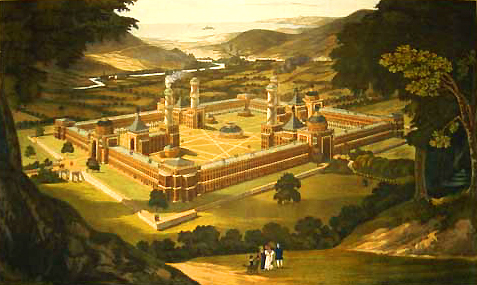Who was Robert Owen and what were his views on socialism?
 January 3, 1825 — Scottish factory owner Robert Owen (May 14, 1771 – November 17, 1858) bought 30,000 acres in Indiana today as a site for his New Harmony utopian community. The Welsh socialist and social reformer invested the bulk of his fortune in the experimental 1,000-member colony on the banks of Indiana’s Wabash River.
January 3, 1825 — Scottish factory owner Robert Owen (May 14, 1771 – November 17, 1858) bought 30,000 acres in Indiana today as a site for his New Harmony utopian community. The Welsh socialist and social reformer invested the bulk of his fortune in the experimental 1,000-member colony on the banks of Indiana’s Wabash River.
Owen advocated the elimination of poverty through the establishment of self-sustaining communities, and experimented with such a community until 1828. He introduced innovative industrial reforms at his New Lanark Mills during the early 1800s, making it a place of pilgrimage for reformers and statesmen from all over Europe.
According to newworldencyclopedia.org: “Owen believed that a man’s character was completely formed by his environment and circumstances, and that placing man under the proper physical, moral, and social influences from his earliest years was the key to the formation of good character and to the amelioration of social problems. Owen’s doctrines were adopted as an expression of the workers’ aspirations, and he became a leader of the trade union movement in England, which advocated control of production by the workers.”
The word “socialism” first became current in the discussions of the “Association of all Classes of all Nations,” which Owen formed 10 years later, in 1835.
Sources
Words of Wisdom
We had a world in miniature — we had enacted the French revolution over again with despairing hearts instead of corpses as a result. ... It appeared that it was nature's own inherent law of diversity that had conquered us ... our 'united interests' were directly at war with the individualities of persons and circumstances and the instinct of self-preservation ...





